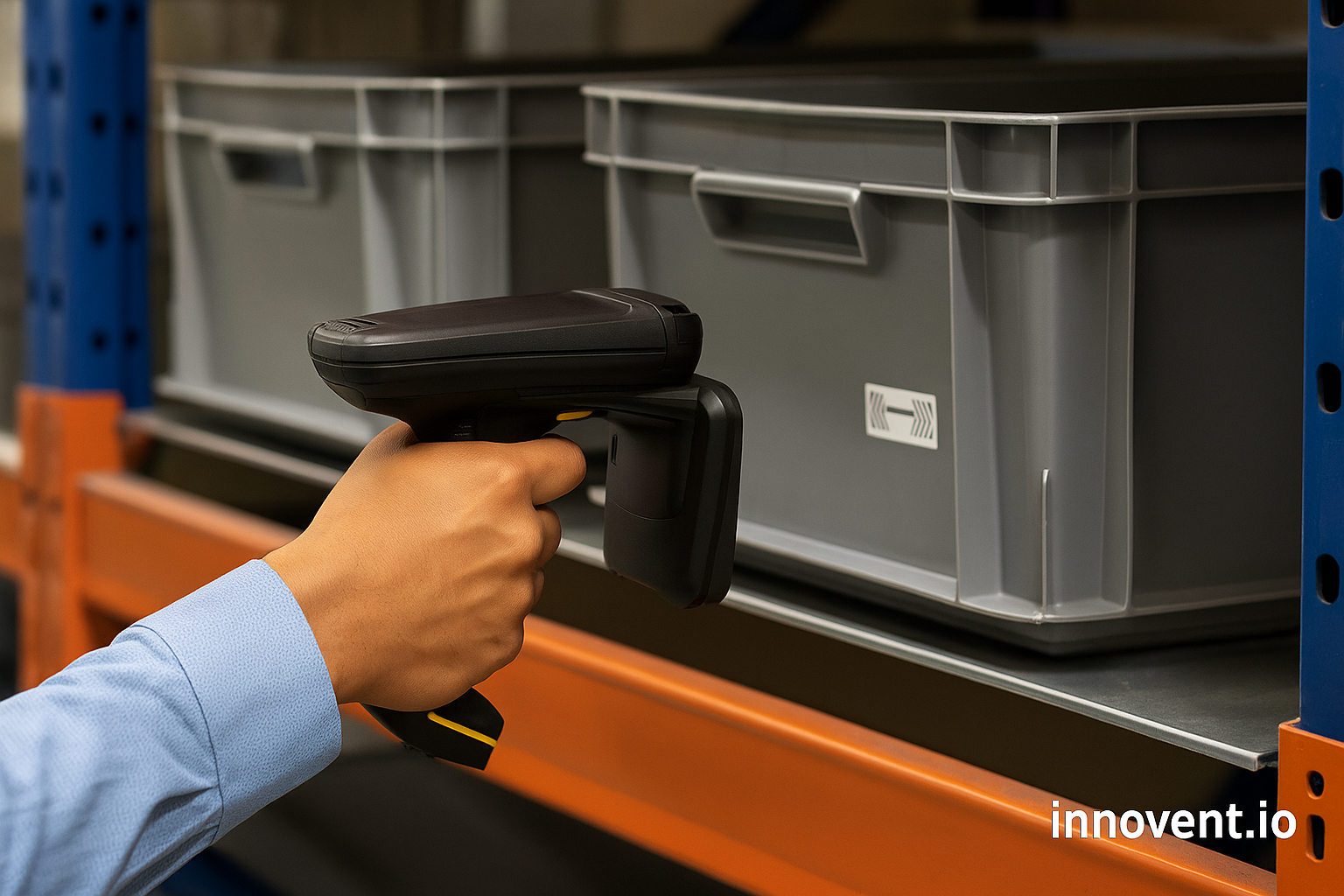
Running a business in the UAE means dealing with fast-moving markets, complex supply chains, and the constant pressure to stay ahead. But one thing can throw a wrench into everything - poor inventory management. When stock numbers don’t add up or shipments go missing, it’s not just frustrating; it’s costly. Luckily, RFID technology is here to change the game. By simplifying inventory tracking and boosting accuracy, RFID is helping businesses across the UAE take control of their stock and operations.
Here’s how it works and why it might just be the solution you didn’t know you needed.
What is RFID, and Why Does It Matter?
RFID, which stands for Radio Frequency Identification, is an amazing technology designed to make inventory management smarter and more efficient. Think of it as an advanced version of the barcode, but with significant advantages. Instead of scanning items one by one, RFID allows for bulk tracking, saving time and reducing human error. This is made possible by RFID tags - small chips attached to products - that emit signals detected by RFID readers. These signals provide immediate updates on stock levels, locations, and movements, eliminating the need for manual counting.
The benefits of RFID are supported by data. Companies that adopt RFID see inventory accuracy jump from 63% to 95%. The time required for inventory counts is drastically reduced, with businesses able to process over 12,000 items per hour compared to only 200 using traditional methods. This technology not only simplifies operations but also offers a competitive edge for businesses aiming to stay ahead in today’s fast-paced markets.
Source: https://cybra.com/5-rfid-statistics-manufacturers-need-to-know
Why RFID is Booming in the UAE
The UAE’s role as a global hub for trade, logistics, and retail has made inventory management a critical part of business operations. Businesses are increasingly turning to RFID to tackle challenges and improve efficiency. In the retail sector, the rapid pace of expansion demands real-time inventory tracking to meet customer needs. RFID helps businesses achieve this by providing immediate and accurate data on stock levels.
Warehousing in the UAE has also benefited significantly from RFID. Visibility in warehouses often lingers at low levels, making it difficult to track stock effectively. RFID addresses this by offering instant updates on the location and quantity of items, dramatically improving operational efficiency. The logistics and supply chain sector has seen similar gains, with manufacturers reporting up to a 90% improvement in receiving times and an 80% increase in shipping accuracy. These improvements highlight why RFID adoption is on the rise across the UAE.
The Real Benefits of RFID Inventory Tracking
RFID brings numerous advantages to businesses looking to streamline their operations. Speed is one of its most significant benefits. The ability to count thousands of items in minutes instead of hours transforms inventory management, allowing businesses to focus on other critical tasks. RFID also enhances accuracy, reducing errors that can lead to overstocking or stockouts, which are both costly for businesses.
Real-time tracking is another game-changing feature of RFID. Businesses can monitor the location of their inventory at any time, whether it is stored in a warehouse or in transit. This level of visibility enables quicker and more informed decision-making. While the initial investment in RFID technology may seem high, the long-term cost savings in terms of labor, time, and error reduction make it a smart choice for businesses of all sizes.
Challenges to Watch Out For
Despite its many advantages, implementing RFID technology comes with challenges. One of the most significant hurdles is the initial cost. Purchasing RFID tags, readers, and software can be expensive, particularly for small and medium-sized businesses. Additionally, integrating RFID with existing inventory management systems may require upgrading infrastructure, which can add to the overall cost and complexity.
Environmental factors also play a role in RFID’s effectiveness. Signals from RFID tags can be disrupted by materials like metal and liquid, necessitating careful planning and placement during installation. Overcoming these challenges requires a clear understanding of business needs and collaboration with experienced RFID providers to ensure a seamless implementation process.
Choosing the Right RFID Solution in the UAE
Selecting the right RFID solution requires careful consideration to ensure it aligns with your business needs. Start by assessing the specific requirements of your operations. Whether you are tracking inventory in a warehouse, managing stock in a retail store, or monitoring goods during shipping, it’s essential to choose a system that meets those unique demands.
Scalability is another crucial factor. As your business grows, your RFID system should be able to expand with it. Opt for a solution that can handle increasing volumes and adapt to evolving operational complexities. Additionally, partnering with experienced RFID providers who understand the unique challenges of the UAE market can make a significant difference. These experts can guide you through the setup process, ensure seamless integration with your existing systems, and provide the necessary training to maximize the technology’s benefits.
Final Words:
RFID technology is more than just a tool - it’s a smart investment for businesses that want to stay ahead in a competitive market like the UAE. From improving inventory accuracy to saving time and cutting costs, the benefits are clear. While there’s an upfront cost and a bit of a learning curve, the long-term rewards make it worth considering.
Whether you’re running a warehouse, managing a retail store, or overseeing a supply chain, RFID can help you make better decisions and keep your operations running smoothly. If you’re ready to leave behind the frustrations of manual inventory tracking, it might be time to explore how RFID can work for you.
What are your thoughts on RFID? Have you tried it, or are you considering it? Share your experience or questions below - let’s keep the conversation going!









